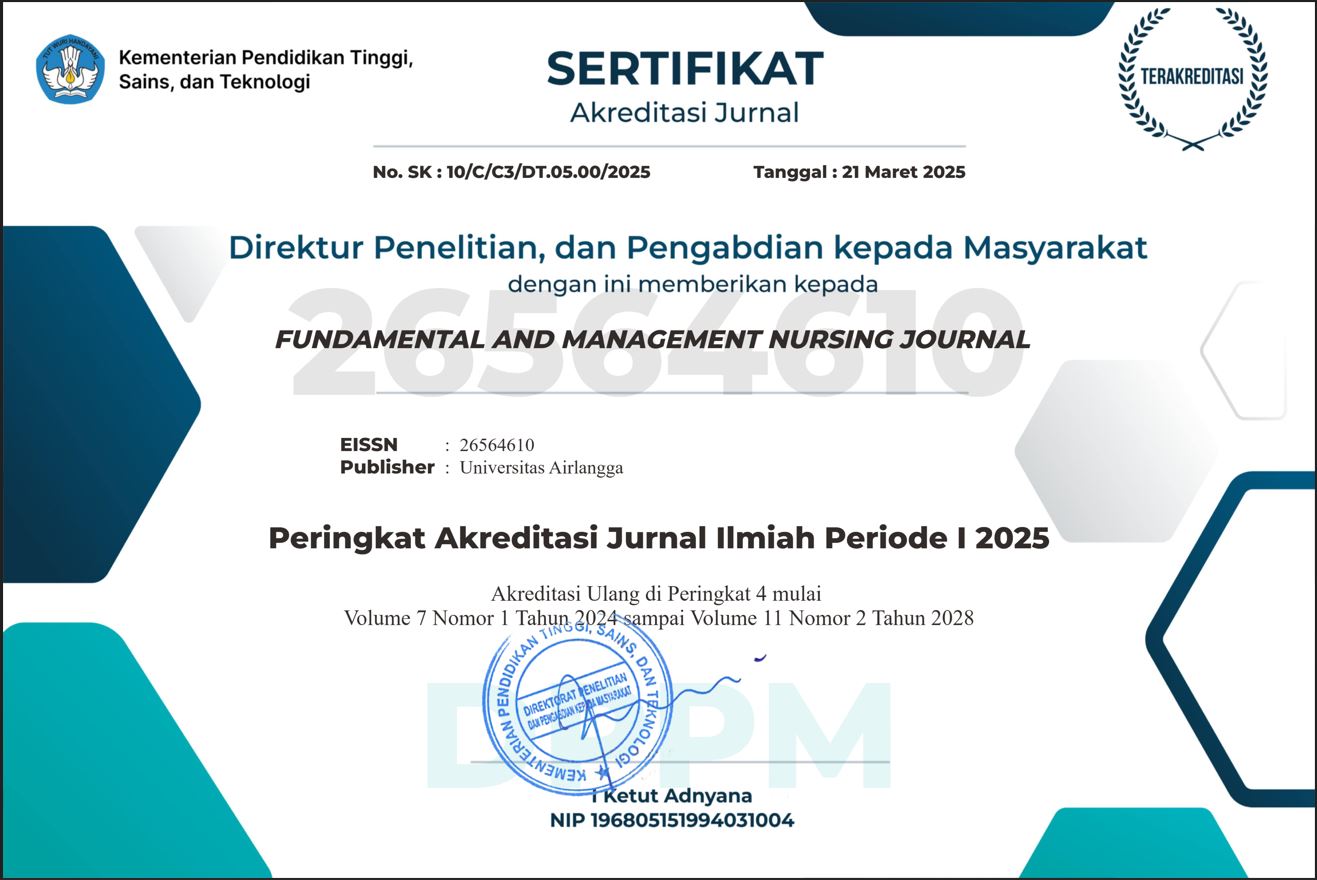Cognitive Behavior Therapy Effects in Patients with Insomnia: A Literature Review
Downloads
Introduction: Insomnia is a sleep disorder that is often complained by adults. The impacts of insomnia have been widely reported to decrease productivity, less involvement in social activities, and decline in mental health status. Interventions to the main quality and quantity of sleep among adults emphasized the benefits of cognitive behavioral therapy (CBT). Nevertheless, the implementations and effects of this particular therapy among adults seem inconsistent. Therefore, this study aims to determine the effect of cognitive behavioral therapy on insomniacs.
Method: A literature review with article searches conducted on the PubMed, SpringerLink, ScienceDirect, and Google Scholar databases was applied, The keywords Cognitive Behavioral Therapy (AND) Insomnia, in articles published in 2018-2021. After going through the selection process, the authors received 10 articles, 6 articles used the Randomized Control Trial method, 1 Case Series Study article, 2 pre-experimental articles, and 1 Single-Arm Pilot Trial article.
Results: The following characteristics of cognitive behavioral therapy were reported to have positive impacts on adults with insomnia. The interventions significantly reduced the level of insomnia of adults aged 26- to 35 years old, the given intervention was delivered for a minimum of 45 minutes to a maximum of 60 minutes, and the length of the program delivered was one to three months. Cognitive behavioral therapy is significant for reducing insomnia.
Conclusions: This review on people with insomnia treated by CBT underlined the impact of the intervention on the targeted outcomes. The findings may have led to greater benefits and that the targeted population had access to high-quality sleep care. Evidence from this review suggested comprehensive sleep management will likely lead to further improvements, as will continued support and implementation beyond the end of the program. A critical need to develop methodologically comprehensive trials with larger sample size and long follow-up periods which rigorously evaluate the efficacy of CBT interventions associated with sleep is required.
Copyright (c) 2022 Syaifuddin Kurnianto, Zainal Abidin, Hesty Dwi Puspitasari

This work is licensed under a Creative Commons Attribution 4.0 International License.
1. The journal allows the author to hold the copyright of the article without restrictions.
2. The journal allows the author(s) to retain publishing rights without restrictions.
3. The legal formal aspect of journal publication accessibility refers to Creative Commons Attribution (CC BY).
















